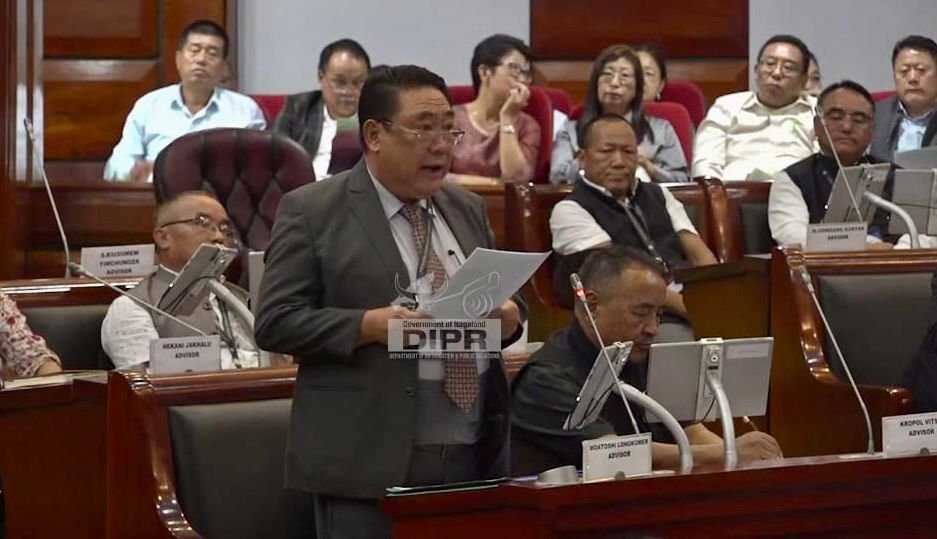Advisor of Excise, Labour & Employment, Skill Development & Entrepreneurship, Moatoshi Longkumer, said the Nagaland Liquor Total Prohibition (NLTP) Act, 1989 came into force in 1990 with high expectation of bringing about a social change and a peaceful environment.
Initiating discussion on matters of urgent public importance pertaining to “Health Hazards of Spurious Liquor” on the inaugural day of the 5th Session of the 14th Nagaland Legislative Assembly, the Advisor viewed that the success of the NLTP Act of 1989 has been widely deemed impaired despite of more than three decades of enforcement due to many underlying factors that undermined to achieve the intended objectives.
Highlighting the negative consequences of NLTP Act 1989, the Advisor said, illegal bootleggers are mushrooming and due to the ever rising demand of the market there are formation of syndicate suppliers. He pointed out that spurious and inferior quality of alcohol flooding in the market is causing serious health hazard leading to untimely death amongst the Naga youth and regular users.
“It is plain to see for everyone that hundreds of illegal liquor outlets in and around Dimapur and Kohima alone have flourished in the guise of cold drink shops. These outlets are operating openly without fear of law enforcement and public outrage. To this issue, hitherto no civil societies or organization have come forward to raise fingers,” stated the Advisor.
He also pointed out that the Prohibition has adversely affected the economy on sectors like tourism, hotels industry, hospitality sector and horticulture, stifling the growth potential of these income and employment generating sector.
Taking into the account of this, Longkumer therefore said, a revisit on NLTP Act 1989 will be an important step and added that in an event of the Amendment of NLTP Act 1989, the Department would intensify the enforcement of NLTP Act 1989.
He proposed that the Department would impose weekly dry day on Sunday and all State and National Holidays time regulations for retail store business hours, regulated timing of bars, restaurants, or lounges where license is issued, to enforce legal drinking age bar at 21 years and above and many other restrictions as deemed fit and other stringent clauses and penalties on violation of the Government notified stipulation.


